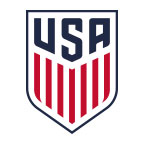 U.S. Soccer has released the final phase of its five-step return-to-play guidelines for coaches, players, parents, referees and administrators, spelling out how soccer teams can return to competition. The latest phase comes with the caution that organizers should follow local health and safety rules before starting competition. In addition, it encourages social distancing when possible and recommends that teams only participate in regional single-day events to avoid significant travel or overnight stays.
U.S. Soccer has released the final phase of its five-step return-to-play guidelines for coaches, players, parents, referees and administrators, spelling out how soccer teams can return to competition. The latest phase comes with the caution that organizers should follow local health and safety rules before starting competition. In addition, it encourages social distancing when possible and recommends that teams only participate in regional single-day events to avoid significant travel or overnight stays.
The national governing body’s five-step PLAY ON campaign begins with a Phase 0 (stay at home) and continues through a Phase IV, which would be a return to play with no restrictions. The latest announced phase marks Phase III, which spells out how teams can engage in competition in a manner deemed safe by U.S. Soccer’s medical professionals before a complete return with no restrictions can be achieved in the future.
“While we’ve now released our full return-to-play guidelines, it’s important that everyone first follow local and state regulations before taking any steps forward,” said U.S. Soccer Chief Medical Officer George Chiampas. “Different areas of the country are at different phases, or even returning to previous phases, as the entire country continues to deal with coronavirus outbreaks. Clubs and teams should take a slow and methodical progression between phases to make sure that all participants will be as safe as possible.”
Sponsored Content
The NGB’s Grassroots Soccer Recommendation Guide seeks to provide all involved in youth soccer with safety protocols to consider and implement at each stage of return to play. While the first phase would be complete stay-at-home recommendation, Phase I allows for training in small groups and is designed to be a four- to six-week program, while Phase II provides for full-team training over three to six weeks. The newly launched Phase III presents recommendations for the safe return and management of full-team competition.
“Regardless of which phase a club or team is operating in, everyone should be prepared to take a step back and revert to an earlier phase if needed,” said Chiampas. “This can be in response to increased risk, cluster outbreaks, updates to public health guidelines or an inability to safely maintain COVID-19 prevention and response protocols. It is important to remain vigilant and flexible as we prepare for every scenario. By prioritizing the safety of our soccer community, we can preserve the health of those around us and help ensure that our sport can remain a part of our lives at this time.”












 Copyright © 2025 by Northstar Travel Media LLC. All Rights Reserved. 301 Route 17 N, Suite 1150, Rutherford, NJ 07070 USA | Telephone: (201) 902-2000
Copyright © 2025 by Northstar Travel Media LLC. All Rights Reserved. 301 Route 17 N, Suite 1150, Rutherford, NJ 07070 USA | Telephone: (201) 902-2000